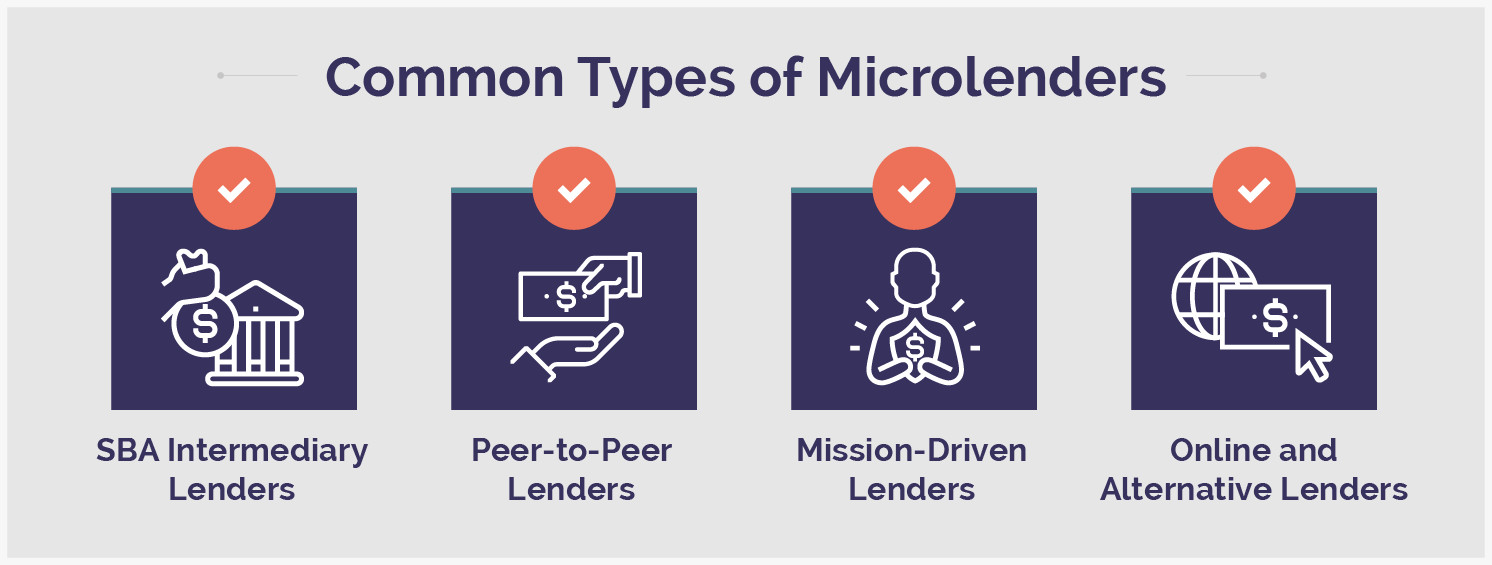Guide to Microloans & Their Uses

Share this article:
Editor’s note: Lantern by SoFi seeks to provide content that is objective, independent and accurate. Writers are separate from our business operation and do not receive direct compensation from advertisers or partners. Read more about our Editorial Guidelines and How We Make Money.
What Is a Microloan?

Working capital Inventory or supplies Furniture or fixtures Machinery or equipment Initial startup expenses
Common Microloan Rates and Terms
Loan amount How funds will be used Specific lender requirements Needs of the borrower
4 Types of Microloans

1. SBA Microloans
2. Peer-to-Peer (P2P) Microlenders
3. Mission-Driven Microlenders
Community Development Banks Community Development Credit Unions Community Development Loan Funds Community Development Venture Capital Funds
4. Online and Alternative Lenders
Crowdfunding sites Online small business lenders Angel investors Venture capitalists Friends and family
Pros and Cons of Microlending
Pros of Microloans
More flexible borrower qualifications Additional services (training, marketing, counseling) Fast turnaround time on application and access to funding
Cons of Microloans
Smaller loan amounts Some microloans have limits on how funds can be spent Potentially higher interest rates than a traditional bank
How To Get a Microloan in 4 Steps
1. Creating a Business Plan
2. Determining Eligibility
Be the sole business owner or co-owner of a for-profit small business Have no recent bankruptcies, late payments, outstanding tax liens, or foreclosures Have the ability to repay the loan with current income/revenue Proof of good payment history with creditors Have a clear, strong business plan for the future Meet any special demographic requirements (e.g. veteran, minority, low-income), when applicable
3. Choosing a Microlender
4. Gathering Documents and Information
Government-issued ID Proof of income Business and personal financial statements How you’ll use the microloan A detailed business plan Proof of collateral, if applicable A list of references who can vouch for you personally and professionally
Lenders Who Offer Microloans
Alternatives to Microloans
Working Capital Loan
Business Line of Credit
Equipment Financing
Top Small Business Loans
Frequently Asked Questions
LCSB0623008
About the Author
Sulaiman Abdur-Rahman writes about personal loans, auto loans, student loans, and other personal finance topics for Lantern. He’s the recipient of more than 10 journalism awards and served as a New Jersey Society of Professional Journalists board member. An alumnus of the Philadelphia-based Temple University, Abdur-Rahman is a strong advocate of the First Amendment and freedom of speech.
Share this article: